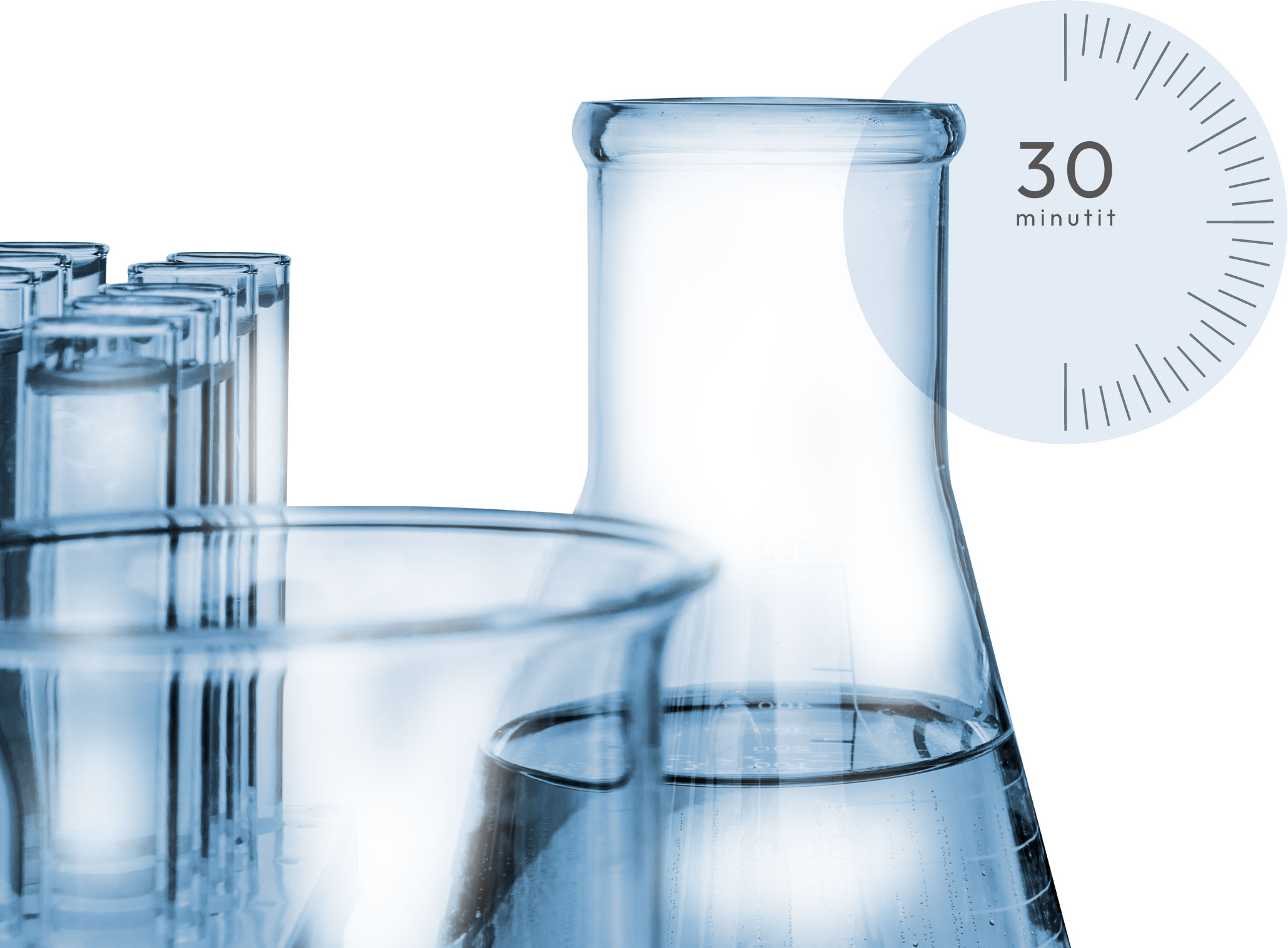HIGH QUALITY WATER FOR DOMESTIC CONSUMERS
We have installed water filters in thousands of homes, ensuring clean drinking water for our customers. High-quality water is important both for human health and for household appliances and technical systems. Several water quality parameters, such as iron, manganese, and hardness, do not pose a threat to human health but can damage devices and surfaces that come into contact with water, such as plumbing, ceramics, household appliances, and heating systems.

WATER ANALYSIS
The installation of a water treatment system always starts with a water analysis. A free water analysis takes just 30 minutes and is carried out in our own laboratory. The analysis will identify the problem your household needs to solve.
The main issues that will help us choose the water treatment system that’s right for you:
HARDNESS
Water hardness is caused by the calcium and magnesium content of water. Calcium and magnesium are essential minerals for human health, but in water they cause the formation of scale and limescale. High water hardness leads to clogged mixers, white stains on sanitary ceramics, increased detergent consumption, scale build-up in boilers and heat exchangers, poorer heat exchange and higher heating costs.
IRON
Iron content in water from natural sources or outdated metal pipes. Elevated iron levels in drinking water do not pose a health risk but worsen the organoleptic properties of water. High iron content leads to an unpleasant taste and cloudiness, yellowish color, and brown sediment in the water. The limit for iron content in drinking water is 0.2 mg/l.
SMELL AND TASTE
The smell and taste of water is affected by a number of substances dissolved in water. Excessive levels of organic substances in the water make it yellowish or greenish in colour, giving it an unpleasant smell and taste. Hydrogen sulphide in groundwater gives the water a rotten egg smell. If water is left standing in a pipe or well for a long period of time, a variety of micro-organisms start to grow in the water, which can release a number of foul-smelling substances and alter the taste of the water.
MANGANASE
Manganese in natural water does not pose a health risk and is regulated to ensure its organoleptic properties. Increased manganese in water causes the formation of black sediment on surfaces in contact with water. The limit value for manganese in drinking water is 0.05 mg/l.
AMMONIUM
The health impact of ammonium in drinking water is very small compared to the amount in food. The limit value for ammonium in drinking water is 0.5 mg/l.

